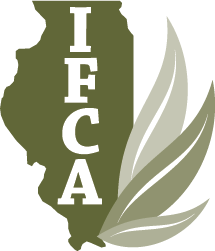News Under the Dome --- One Week of Session Left in Springfield
With just one week of session left this spring, lawmakers continue to have large, looming issues over their heads as they come back to Springfield. Passing a balanced budget with revenue shortfalls, revamping the Chicagoland mass transit system that has been plagued with operation and funding problems for years, and advancing an omnibus energy bill to advance clean energy while being mindful of rates and a growing lack of electric generation to find a path towards a resolution are among these issues.
Passing a constitutionally required balanced budget will be on the minds of all legislators as they brace for revenue shortfalls that may impede competing factions of legislators and their funding priorities. To put it plainly, Illinois is facing a tough budget year. While actual revenue has consistently outpaced projections, recent reports by the Commission on Government Forecasting and Accountability (COGFA) and the Governor’s Office of Management and Budget (GOMB) show that the state is still facing a deficit of more than a half billion dollars on a nearly $55 billion budget. Insiders in the Pritzker Administration warn that numbers could actually be worse with lower-than-expected revenue from corporate and individual income taxes and reduced consumer confidence resulting in reduced sales tax dollars. While half a billion-dollar shortfall is better than projections made last fall and the beginning of 2025, when revenue experts predicted a multibillion-dollar deficit, the current fiscal situation still presents a challenge for legislators who are without a funding surplus for the first time in years.
To make matters worse, there remains uncertainty on federal funding for state programs as the Trump Administration continues to reevaluate the federal government's role in supporting certain programs. The latest out of Washington is a desire to cut the federal matching rate for the Affordable Care Act’s (ACA) Medicaid expansion in the 14 states, including Illinois, who provide health coverage programs to cover people without a documented immigration status. This cut alone could cost states billions of dollars in federal funds.
While the General Assembly is required to pass a balanced budget by the end of session, legislative leaders are warning that decisions at the federal level could force the legislature to call an emergency session this summer to address additional funding shortfalls. What actions could be taken to offset additional revenue losses are unknown, and while talks have focused on budget cuts, exploring additional revenue sources is still on the table.
Despite calls from legislators on both sides of the aisle to balance the budget without new revenue streams, possible revenue generating ideas that have been floated include a major expansion on sales tax on services, an increase in the corporate income tax by 0.92%, a commercial parking tax, increased rideshare fees, a real estate transfer tax, a road usage charge, a delivery tax on online orders, a tolling surcharge, and changing addback income tax rules, to name a few.
